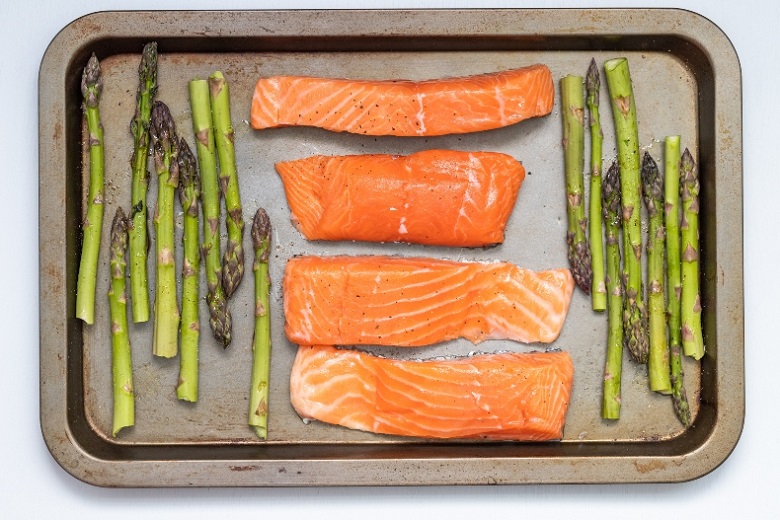7 Easy Ways to Increase Your Daily Protein Intake

Protein is essential in every diet, helping to lower blood pressure, improve bone health, and boost metabolism. However, your daily protein intake might be especially important if you’re attempting to achieve specific results, as increased protein could reduce your appetite, aid in weight loss, boost strength, and increase muscle mass. Clearly, protein is crucial and offers plenty of advantages, but many individuals also find it difficult to increase the amount they consume on a daily basis. If this is the case with you as well, here are some easy ways you might be able to boost your daily protein intake:
Eat high-protein foods
The total amount of protein you consume each day tends to be a priority, but getting enough protein with every meal is also important. In fact, it’s recommended to consume at least 20–30 grams of protein during each meal. This can help to preserve muscle mass and promote fullness, often better than eating smaller amounts throughout the day. High-protein foods you can eat with every meal include poultry, red meat, fish, eggs, and legumes, as well as soy products such as tofu and tempeh.

Consume proteins first
When eating a meal, it might also be helpful to eat your proteins first, especially before moving on to starches. Proteins can increase the production of certain peptides and gut hormones that help you feel more satisfied and full. Similarly, increasing your protein intake can also minimize levels of the “hunger hormone”, aiding in boosting your metabolism in the process. Consuming your proteins first might also prevent your insulin and blood sugar levels from increasing after meals. All of this can help to increase your protein intake and lead to a more balanced diet.
Choose leaner meats
Slightly increasing your portion sizes and choosing leaner cuts of meat can increase the protein content of your meals as well. What’s more, your meals could also end up with lower calories as a result. This is another simple change to make, but one that can significantly affect your daily intake. In case you’re looking for meat alternatives, however, foods such as seitan, edamame, beans, nutritional yeast, hemp seeds, quinoa, and spirulina could all be good sources of protein to incorporate into every meal throughout the day.
Opt for a protein powder
If you’re attempting to significantly increase your intake on a daily basis, incorporating a healthy protein powder into your daily diet is undoubtedly the best possible solution. Whether you drink a protein shake for breakfast or even add some protein powder to your smoothies and baked goods, protein powders tend to be highly nutritious and an incredibly beneficial supplement. They’re especially helpful for individuals who simply can’t increase their portion sizes or boost their protein intake through conventional meals.
Make smaller changes
Many common foods we eat on a daily basis are low on protein, but could easily be replaced with better alternatives that will enable you to boost your daily intake. For example, cereal in the morning can be swapped with eggs, you can use Greek yogurt as a spread or topper, snack on healthier types of lean jerky throughout the day, or even incorporate more peanut butter into your diet. Not only are all of these foods high in protein, but they are also delicious alternatives that will aid in increasing your intake without having to alter your daily diet all that much.

Snack on cheese
Snacks could also be a great way to sneak some protein into your diet, but you need to choose the right ones. It seems like cheddar cheese can be a great solution, providing around 7 grams of protein per serving, as well as higher calcium and significantly fewer calories compared to traditional snacks. Cheese doesn’t actually seem to raise cholesterol levels quite as much either, and it might also offer some heart health advantages in certain cases. So, try munching on some cheese between meals or even pair your favorite cheese with sliced apples, tomatoes, or whole-grain crackers for a healthy, high-protein snack.
Don’t overlook nuts
It turns out that almonds are incredibly healthy as well. They’re relatively low in digestible carbs, but they’re high in fiber, magnesium, and heart-beneficial monounsaturated fat. Almonds also contain around 6 grams of protein per serving, making them one of the best nuts for increasing your protein intake and a great consideration for vegans. So, think about snacking on them every once in a while or even sprinkle them over salads, cottage cheese, yogurt, and oatmeal.
Consuming enough protein each day might be challenging, but it’s also crucial to your overall health. A good protein intake comes with a number of advantages, such as aiding in weight loss and gaining muscle, so use the helpful tips mentioned above to boost your daily intake.